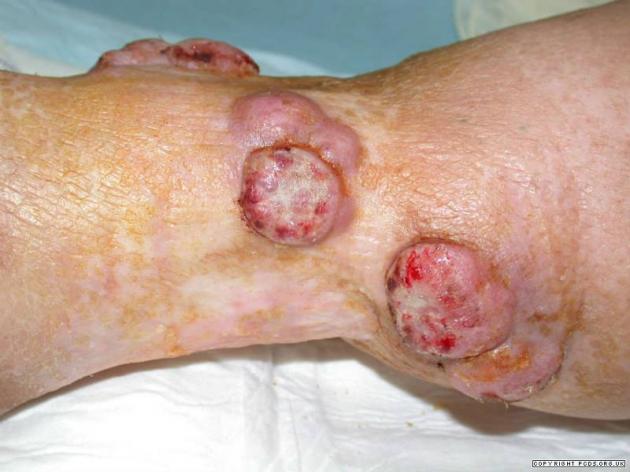FDA to approve Bavencio for metastatic Merkel cell carcinoma
The U.S Food and Drug Administration has granted approval to Bavencio (avelumab) for the treatment of adults and children patients 12 years or older with metastatic Merkel cell carcinoma (MCC), including those who have not received chemotherapy.
Bavencio is the first FDA-approved treatment for metastatic MCC, a rare, destructive form of skin cancer, the U.S. agency said in a press release Thursday.

Approximately 1,600 people in the United States are diagnosed with MCC every year, as compared to around 60,000 new cases of melanoma and over 1 million new cases of non-melanoma skin cancer, according to the National Cancer Institute.
The majority of patients with localized tumors can be treated with surgical resection, while approximately half of the patients can experience relapse and more than 30 percent will develop metastatic disease.
“While skin cancer is one of the most common types of cancer, patients with a rare form called Merkel cell cancer have not had an approved treatment option until now,” said Richard Pazdur, acting director of the Office of Hematology and Oncology Products in the FDA’s Center for Drug Evaluation and Research.
The scientific community continues to make advances targeting the body’s immune system mechanisms for the treatment of various types of cancer. These advancements are leading to new therapies, even in rare forms of cancer where treatment options are limited or non-existent, Pazdur added.
Bavencio’s approval was based on data from trials of 88 patients with metastatic MCC who has previously been treated with at least one prior chemotherapy treatment. The trial measured the percentage of patients who experiences a partial or complete reduction of their tumors and the length of time the tumor was controlled.
Out of the 88 patients who received Bavencio in the trial, 33 percent experienced a partial or complete reduction of their tumors. The response lasted for more than six months in 86 percent of responding patients and more than 12 months in 45 percent of responding patients.
The common side effects of Bavencio include fatigues, musculoskeletal pain, nausea, diarrhea, rash, decreased appetite, swelling of limbs and infusion-related reactions. The most serious risks of Bavencio are immune-mediated: the body’s immune system attacks healthy cells or organs such as lungs (pneumonitis), liver (hepatitis), colon (colitis), hormone-producing glands (endocrinopathies) and kidneys (nephritis).
Patients who experience life-threatening reactions should stop using Bavencio. Women who are pregnant or breastfeeding should not take Bavencio because it can cause harm to the developing fetus or the newborn baby.

